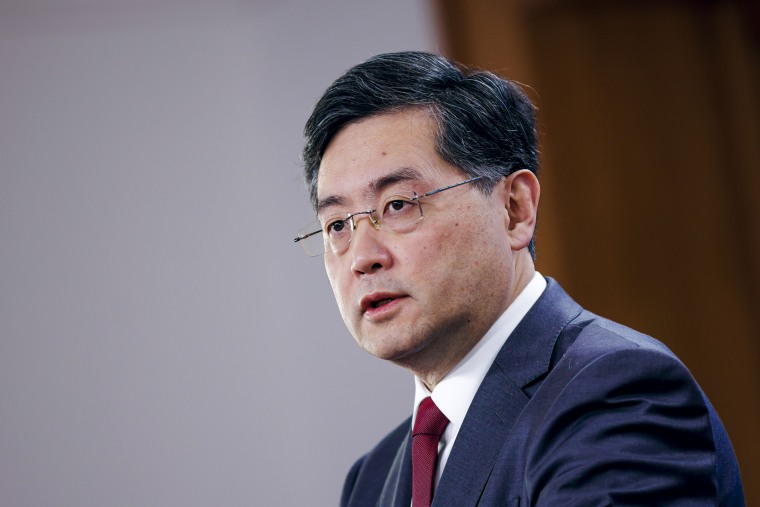HONG KONG — Chinese Foreign Minister Qin Gang has been removed from his post, state media reported Tuesday, deepening a mystery that began a month ago when the prominent diplomat disappeared from public view.
According to Xinhua, China’s state-run news agency, he has been replaced by Wang Yi, China’s top diplomat and Qin’s predecessor.
The decision was made at a special session of the National People’s Congress Standing Committee, China’s top legislative body. No reason was given for the removal, which comes as China is ramping up diplomatic efforts around the world, including with the U.S.
Ties between the world’s two biggest economies are at their lowest point in decades amid disputes over trade, human rights, Russia’s war in Ukraine and the status of Taiwan, a self-governing island that Beijing claims as its territory.
Regarded as a fast-rising protégé of President Xi Jinping, Qin, 57, was China’s ambassador to the U.S. from July 2021 until he was promoted to foreign minister in December. Qin was an early adopter of the combative rhetoric later known as China’s “wolf warrior diplomacy.”
Qin’s seven-month stint in the role is the shortest of any foreign minister since the Chinese Communist Party came to power in 1949.
Qin was last seen in public June 25 in Beijing after he met with officials from Sri Lanka, Russia and Vietnam. Questions about his whereabouts began to intensify this month when he did not attend the annual Association of Southeast Asian Nations gathering of foreign ministers in Indonesia.
The Chinese Foreign Affairs Ministry had said Qin would miss the event because of an unspecified health issue. Since then, it has avoided answering repeated questions about his status, saying only that China’s diplomacy is proceeding as normal.
China’s political system is notoriously opaque, and the government rarely comments on personal matters involving senior officials, but Qin’s absence and the lack of explanation were highly unusual.
While there was no official comment on Qin, rumors and speculation about the reason for his absence were allowed to circulate freely on China’s heavily censored social media, suggesting he was likely to be removed.
“This is not a regular replacement: The timing is irregular, and the circumstances are irregular,” said Jeremy Paltiel, a political science professor and China expert at Carleton University in Ottawa. “It’s awkward for China, because this has been a busy month for U.S.-Sino relations and he is the top America expert on China’s team.”
Paltiel said there was still a big question mark over why it happened. “If it were health-related, a more expansive statement would have been offered,” he said.
In China’s usually well-managed system, “they like everything programmed in advance,” he added. “The fact that it wasn’t means there’s already a loss of face.”
Before he disappeared, Qin actively participated in diplomatic events. After his meeting in Beijing with Secretary of State Antony Blinken on June 18, he was absent during visits by other top U.S. officials, including Treasury Secretary Janet Yellen and climate envoy John Kerry.
It was Wang, 69, who met with Blinken at the ASEAN event in Indonesia this month. He also met with veteran U.S. diplomat Henry Kissinger when Kissinger made a surprise visit to Beijing last week.
Other diplomatic engagements that may have been disrupted include a trip to China by European Union foreign policy chief Josep Borrell, which had scheduled for this month before it was abruptly canceled.
“Qin’s disappearance has curtailed China’s diplomatic activity over the last month but will have little impact on the country’s foreign policy or present meaningful reputational risks for Xi,” the Eurasia Group, a consulting firm based in New York, said in a note before Qin was removed.
